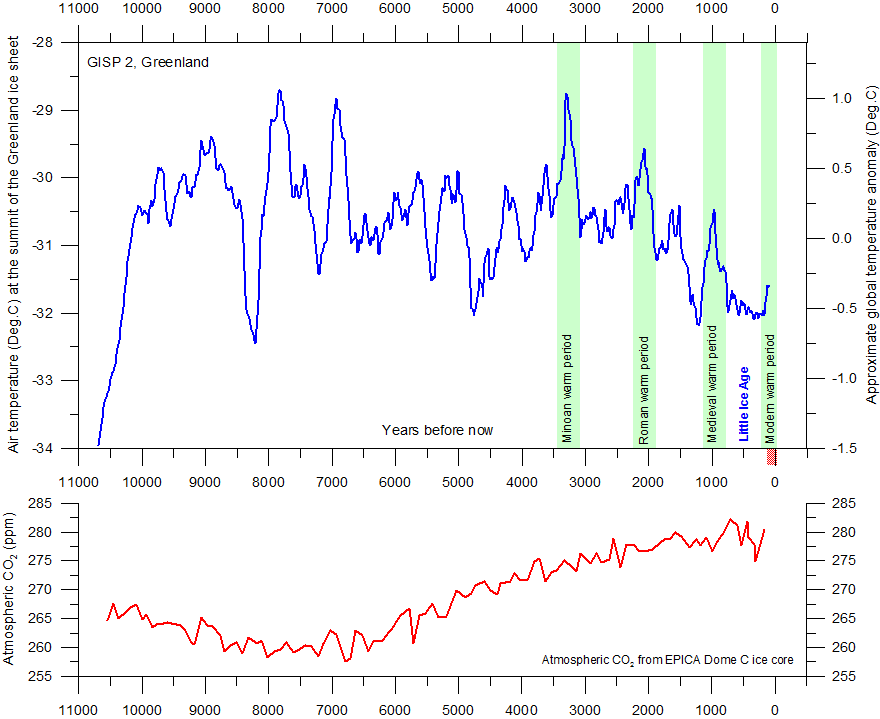GOAUS!
Norm Smith Medallist
- Apr 20, 2010
- 9,782
- 7,519
- AFL Club
- Western Bulldogs
Correlation does not demonstrate causation. And the correlation is not clear. Since industrialisation there have been some periods of positive correlation and other periods showing an inverse correlation. Over the longer term the correlation is not evident.

The correlation between the CO2 and temperature and sea level rise is quite evident and well established over the longer term (last 400,000 years).







